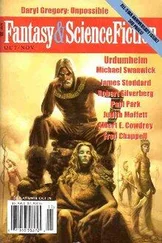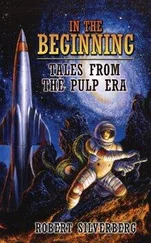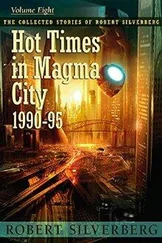Robert Silverberg - Thomas the Proclaimer
Здесь есть возможность читать онлайн «Robert Silverberg - Thomas the Proclaimer» весь текст электронной книги совершенно бесплатно (целиком полную версию без сокращений). В некоторых случаях можно слушать аудио, скачать через торрент в формате fb2 и присутствует краткое содержание. Год выпуска: 2012, ISBN: 2012, Издательство: Subterranean Press, Жанр: Фантастика и фэнтези, на английском языке. Описание произведения, (предисловие) а так же отзывы посетителей доступны на портале библиотеки ЛибКат.
- Название:Thomas the Proclaimer
- Автор:
- Издательство:Subterranean Press
- Жанр:
- Год:2012
- ISBN:978-1-59606-509-3
- Рейтинг книги:5 / 5. Голосов: 1
-
Избранное:Добавить в избранное
- Отзывы:
-
Ваша оценка:
- 100
- 1
- 2
- 3
- 4
- 5
Thomas the Proclaimer: краткое содержание, описание и аннотация
Предлагаем к чтению аннотацию, описание, краткое содержание или предисловие (зависит от того, что написал сам автор книги «Thomas the Proclaimer»). Если вы не нашли необходимую информацию о книге — напишите в комментариях, мы постараемся отыскать её.
Thomas the Proclaimer — читать онлайн бесплатно полную книгу (весь текст) целиком
Ниже представлен текст книги, разбитый по страницам. Система сохранения места последней прочитанной страницы, позволяет с удобством читать онлайн бесплатно книгу «Thomas the Proclaimer», без необходимости каждый раз заново искать на чём Вы остановились. Поставьте закладку, и сможете в любой момент перейти на страницу, на которой закончили чтение.
Интервал:
Закладка:
But I never became a believer. I had a natural predisposition toward skepticism. If you can’t measure it, it isn’t there. That included not only Old Whiskers and His Only Begotten Son, but all the other mystic baggage that people liked to carry around in those tense credulous years: the flying saucers, Zen Buddhism, the Atlantis cult, Hare Krishna, macrobiotics, telepathy and other species of extrasensory perception, theosophy, entropy-worship, astrology, and such. I was willing to accept neutrinos, quasars, the theory of continental drift, and the various species of quarks, because I respected the evidence for their existence; I couldn’t buy the other stuff, the irrational stuff, the assorted opiates of the masses. When the Moon is in the seventh house, etc., etc.—sorry, no. I clung to the path of reason as I made my uneasy journey toward maturity, and hardheaded little Billy Gifford, smartypants bug collector, remained unchurched as he ripened into Professor William F. Gifford, Ph.D., of the Department of Physics, Harvard. I wasn’t hostile to organized religion, I just ignored it, as I might ignore a newspaper account of a jai-alai tournament in Afghanistan.
I envied the faithful their faith, oh, yes. When the dark times got darker, how sweet it must have been to be able to rush to Our Lady of the Sorrows for comfort! They could pray, they had the illusion that a divine plan governed this best of all possible worlds, while I was left in bleak, stormy limbo, dismally aware that the universe makes no sense and that the only universal truth there is, is that Entropy Eventually Wins.
There were times when I wanted genuinely to be able to pray, when I was weary of operating solely on my own existential capital, when I wanted to grovel and cry out, Okay, Lord, I give up, You take it from here. I had favors to ask of Him: God, let my little girl’s fever go down. Let my plane not crash. Let them not shoot this President too. Let the races learn how to live in peace before the blacks get around to burning down my street. Let the peace-loving enlightened students not bomb the computer center this semester. Let the next kindergarten drug scandal not erupt in my boy’s school. Let the lion lie down with the lamb. As we zoomed along on the Chaos Express, I was sometimes tempted toward godliness the way the godly are tempted toward sin. But my love of divine reason left me no way to opt for the irrational. Call it stiffneckedness, call it rampant egomania: no matter how bad things got, Bill Gifford wasn’t going to submit to the tyranny of a hobgoblin. Even a benevolent one. Even if I had favors to ask of Him. So much to ask; so little faith. Intellectual, honesty über alles, Gifford! While every year things were a little worse than the last.
When I was growing up, in the 1970’s, it was fashionable for educated and serious-minded people to get together and tell each other that western civilization was collapsing. The Germans had a word for it, Schadenfreude, the pleasure one gets from talking about catastrophes. And the 1970’s were shadowed by catastrophes, real or expected: the pollution escalation, the population explosion, Vietnam and all the little Vietnams, the supersonic transport, black separatism, white backlash, student unrest, extremist women’s lib, the neofascism of the New Left, the neonihilism of the New Right, a hundred other varieties of dynamic irrationality going full blast, yes, ample fuel for the Schadenfreude syndrome. Yes, my parents and their civilized friends said solemnly, sadly, gleefully, it’s all blowing up, it’s all going smash, it’s all whooshing down the drain. Through the fumes of the Saturday-night pot came the inevitable portentous quotes from Yeats: Things fall apart; the center cannot hold; mere anarchy is loosed upon the world. Well, that shall we do about it? Perhaps it’s really beyond our control now. Brethren, shall we pray? Lift up your voices unto Him! But I can’t. I’d feel like a damned fool. Forgive me, God, but I must deny You! The best lack all conviction, while the worst are full of passionate intensity.
And of course everything got much more awful than the doomsayers of the 1970’s really expected. Even those who most dearly relished enumerating the calamities to come still thought, beneath their grim joy, that somehow reason ultimately would triumph. The most gloomy Jeremiah entertained secret hopes that the noble ecological resolutions would eventually be translated into meaningful environmental action, that the crazy birth spiral would be checked in time, that the strident rhetoric of the innumerable protest groups would be tempered and modulated as time brought them the beginning of a fulfillment of their revolutionary goals—but no. Came the 1980’s, the decade of my young manhood, and all the hysteria jumped to the next-highest energy level. That was when we began having the Gas Mask Days. The programmed electrical shutdowns. The elegantly orchestrated international chaos of the Third World People’s Prosperity Group. The airport riots. The black rains. The Computer Purge. The Brazilian Pacification Program. The Claude Harkins Book List with its accompanying library-burnings. The Ecological Police Action. The Genetic Purity League and its even more frightening black counterpart. The Children’s Crusade for Sanity. The Nine Weeks’ War. The Night of the Lasers. The center had long ago ceased to hold; now we were strapped to a runaway wheel. Amidst the furies I studied, married, brought forth young, built a career, fought off daily terror, and like everyone else, waited for the inevitable final calamity.
Who could doubt that it would come? Not you, not I. And not the strange wild-eyed folk who emerged among us like dark growths pushing out of rotting logs, the Apocalyptists, who raised Schadenfreude to the sacramental level and organized an ecstatic religion of doom. The end of the world, they told us, was scheduled for January 1, A.D. 2000, and upon that date, 144,000 elite souls, who had “sealed” themselves unto God by devotion and good works, would be saved; the rest of us poor sinners would be hauled before the Judge. I could see their point. Although I rejected their talk of the Second Coming, having long ago rejected the First, and although I shared neither their confidence in the exact date of the apocalypse nor their notions of how the survivors would be chosen, I agreed with them that the end was close at hand. The fact that for a quarter of a century we had been milking giddy cocktail-party chatter out of the impending collapse of western civilization didn’t of itself guarantee that western civilization wasn’t going to collapse; some of the things people like to say at cocktail parties can hit the target. As a physicist with a decent understanding of the entropic process, I found all the signs of advanced societal decay easy to identify: for a century we had been increasing the complexity of society’s functions so that an ever-higher level of organization was required in order to make things run, and for much of that time we had simultaneously been trending toward total universal democracy, toward a world consisting of several billion self-governing republics with a maximum of three citizens each. Any closed system which experiences simultaneous sharp increases in mechanical complexity and in entropic diffusion is going to go to pieces long before the maximum distribution of energy is reached. The pattern of consents and contracts on which civilization is based is destroyed; every social interaction, from parking your car to settling an international boundary dispute, becomes a problem that can be handled only by means of force, since all “civilized” techniques of reconciling disagreement have been suspended as irrelevant; when the delivery of mail is a matter of private negotiation between the citizen and his postman, what hope is there for the rule of reason? Somewhere, somehow, we had passed a point of no return—in 1984, 1972, maybe even that ghastly day in November of 1963—and nothing now could save us from plunging over the brink.
Читать дальшеИнтервал:
Закладка:
Похожие книги на «Thomas the Proclaimer»
Представляем Вашему вниманию похожие книги на «Thomas the Proclaimer» списком для выбора. Мы отобрали схожую по названию и смыслу литературу в надежде предоставить читателям больше вариантов отыскать новые, интересные, ещё непрочитанные произведения.
Обсуждение, отзывы о книге «Thomas the Proclaimer» и просто собственные мнения читателей. Оставьте ваши комментарии, напишите, что Вы думаете о произведении, его смысле или главных героях. Укажите что конкретно понравилось, а что нет, и почему Вы так считаете.












